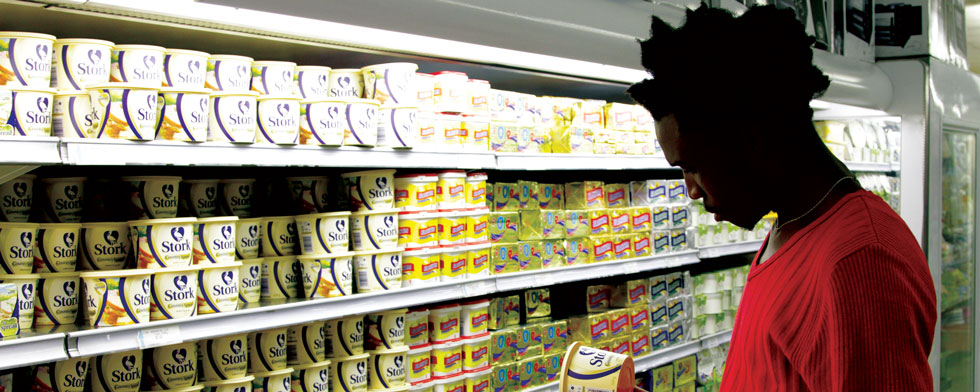
IN Zimbabwe, 1,6 million people are estimated to be dependent on food aid and 34% are considered “chronically malnourished”.
Pamela Ngwenya
There is much contrast in food access and diversity between different areas of the country and between the urban and rural.
In urban areas, shops now stock a plentiful supply of fresh produce and dried goods, with much of it imported from South Africa.
But access to food is dependent on access to cash and with up to 90% (depending on your source) estimated to be unemployed, many Zimbabweans rely on family members working outside of the country in order to buy food.
In this context, “food security” has been high on the donor agenda. Food security is generally defined as a condition where “all people, at all times, have physical and economic access to sufficient, safe and nutritious food to meet their dietary needs and food preferences for an active and healthy life”.
This has been a primary goal of most of the small agrofood projects that I have visited in Zimbabwe. Generating a stable source of nutrition for communities is high on the agenda, given the spiralling levels of food insecurity since the mid-2000s.
This insecurity is generally explained by a decreased access to cash and increasing food prices, rather than a decline in agricultural productivity or food availability.
- Chamisa under fire over US$120K donation
- Mavhunga puts DeMbare into Chibuku quarterfinals
- Pension funds bet on Cabora Bassa oilfields
- Councils defy govt fire tender directive
Keep Reading
Belonging to a community garden project is one strategy to fight food insecurity. Community gardens provide participating members with a regular supply of fresh vegetables for home consumption and therefore address household food insecurity in an effective way, although cash is still required for purchase of maize meal.
Multiple sustainability strategies, including conservation farming, permaculture and organic farming, are underway at these gardens, depending on the agenda of the support organisation.
But in my mind, what is interesting at many projects is a consciousness of taking control of one’s own food supply chain.
Whereas a concern solely with food security could render these gardens obsolete once the cash income of participants rises (so that they no longer have difficulty paying for food), a concern with self-determination of the food supply chain makes gardening an act of empowerment and an assertion of self-sufficiency.
Having this power over what you eat can be thought of in terms of “food sovereignty”. This has been defined as “the right of people to produce, distribute and consume healthy food in or near their territory in an ecologically sustainable manner”.
Food sovereignty supports local supply chains and also promotes indigenous foods.
Taking control of one’s own food supply chain can also be connected to concerns over food safety. Didymus Taruvinga, lead farmer at the Mountain of Hope Organic Garden project in Wedza, spoke of concerns over the effect of pesticide application on the nutritional qualities of food: “We realised that the chemicals . . . being used during the production of carrots are going to give after-effects to the people who consume.”
Their organic community garden project gives members a sense of empowerment over the safety and quality of their food.
Food sovereignty is also about knowledge; either knowing and growing your own food or codifying such knowledge through certification schemes such as the FairTrade label or, here in Zimbabwe, the ZimOrganic label.
Such certification schemes are dependent on trust.
This point reminds us of the importance of building and maintaining strong consumer standards and monitoring organisations in Zimbabwe.
In Harare, concerned farmers and citizens have joined the Zimbabwe Organic Producers and Promoters’ Association (ZOPPA), who have recently created the ZimOrganic label and are pursuing an agenda of public education, farmer monitoring and the setting of legally binding standards, thereby attempting to generate awareness and trust throughout the food supply chain.
The Mountain of Hope farmers in Wedza, facilitated by ZOPPA and Fambidzanai Permaculture Training Centre, are one of the first to adopt the ZimOrganic scheme to certify their produce under these international organic standards. For organic farmers and consumers, food sovereignty — taking control of one’s own food supply chain — is just as important as food security.
It is about knowing what you are eating and where it comes from; it is about the power to make informed food choices.
An interest in food sovereignty is also important to the long-term sustainability of community garden projects, which can otherwise fall apart in times when cash is more readily available.
Dr Pamela Ngwenya is a postdoctoral fellow at the School of Built Environment and Development Studies, University of KwaZulu-Natal, South Africa











